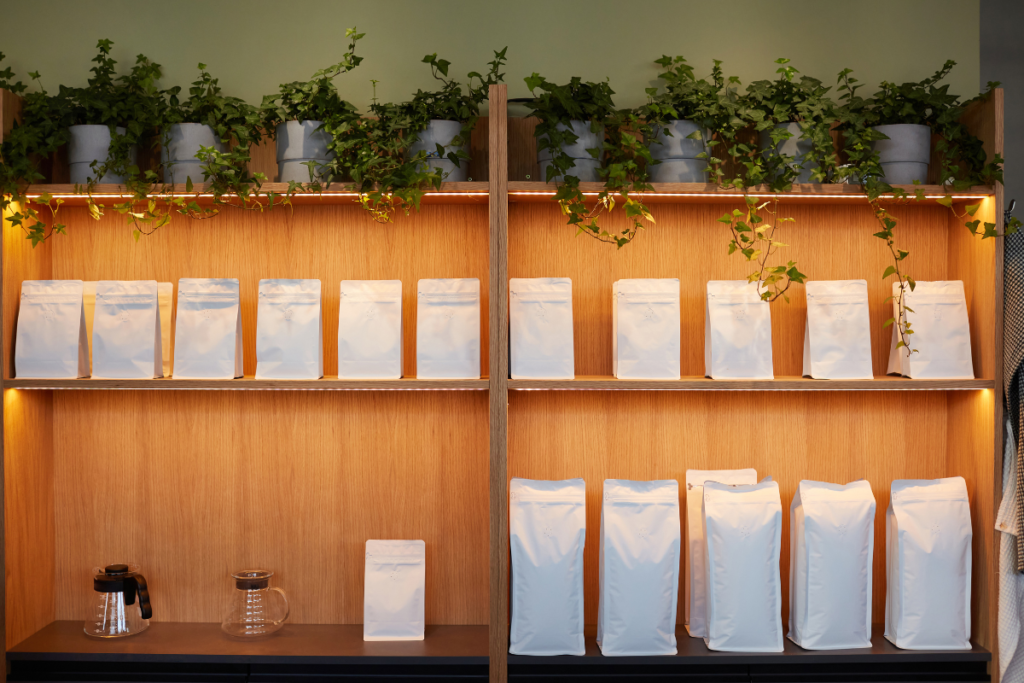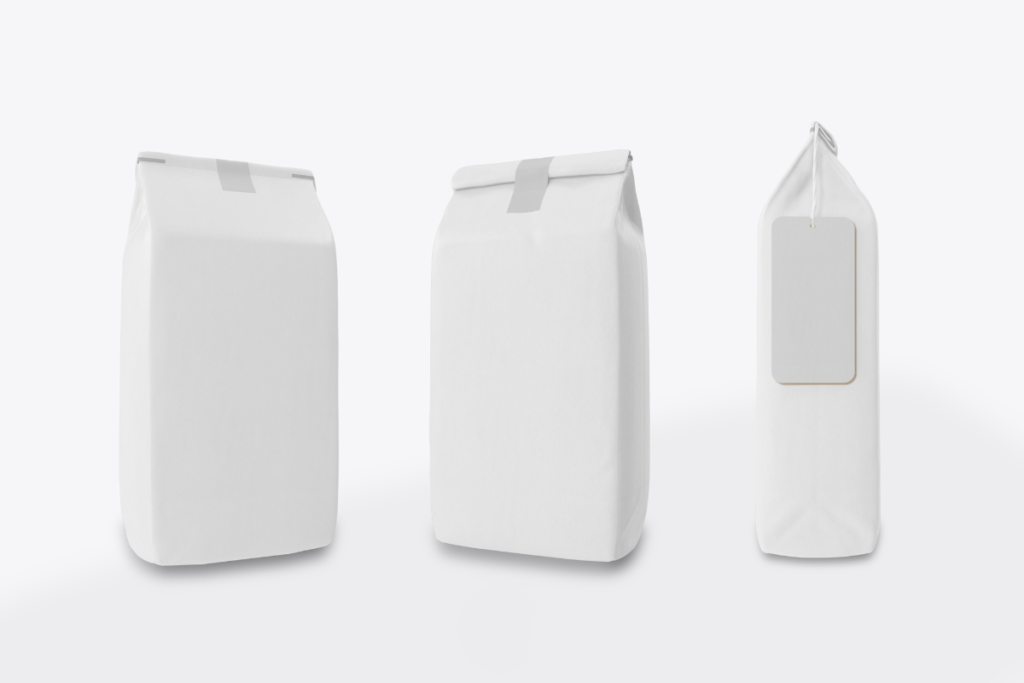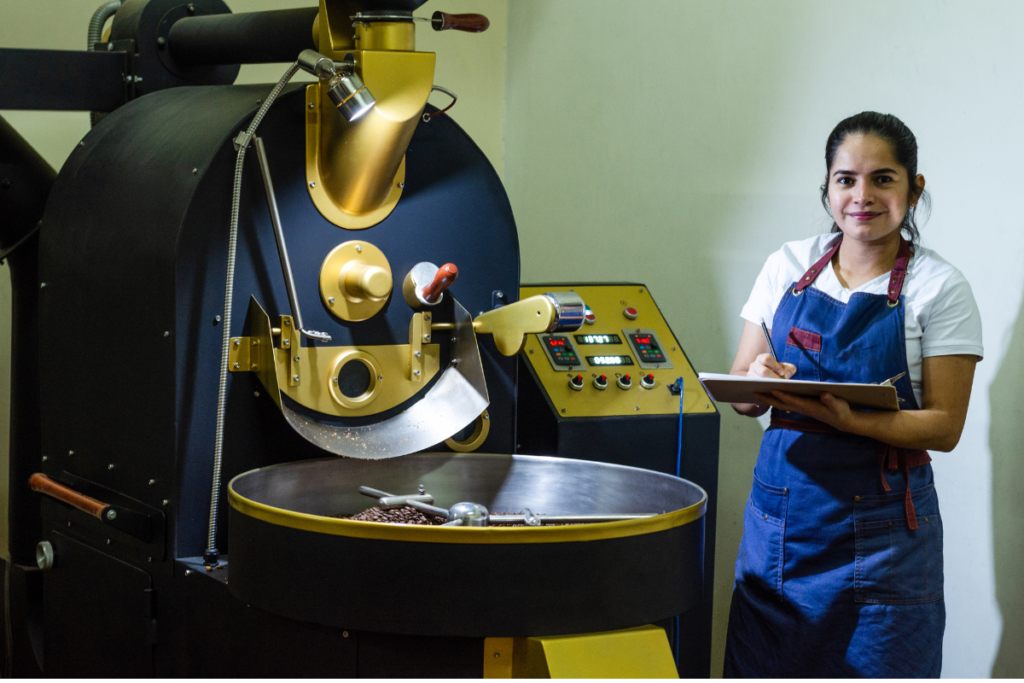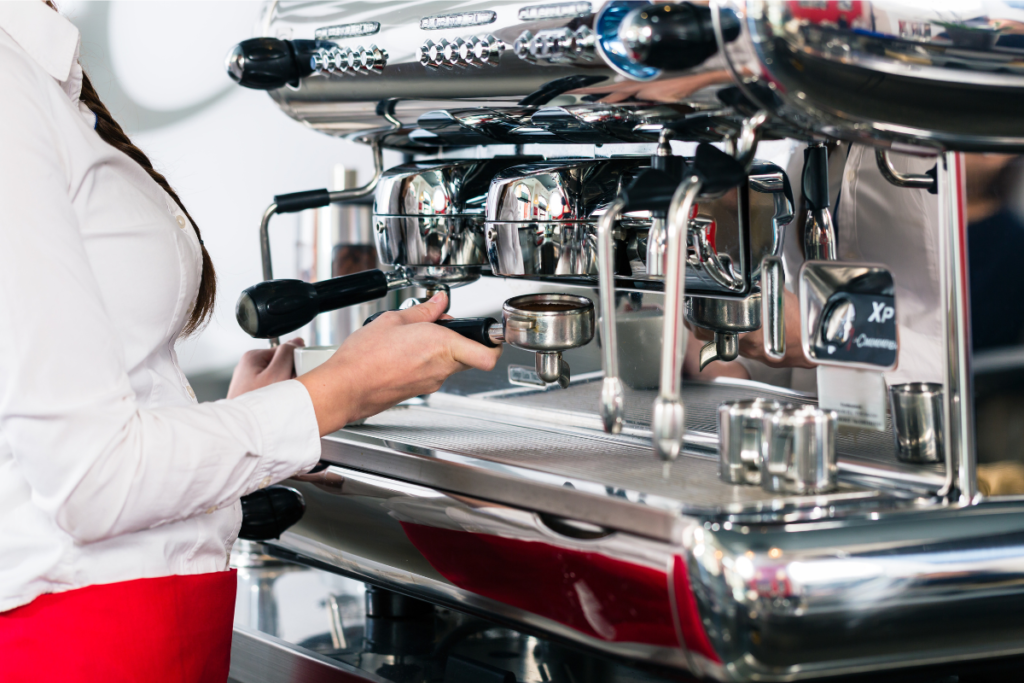Launching a roastery involves more than just the daily task of roasting coffee. Turning green beans into delicious roasted coffee is a challenging process, but the real effort lies in marketing and sales. To achieve success, it is crucial to attract customers who will purchase the product.
For some roasters, white label coffee can be a valuable strategy to reach new audiences and boost sales. Originating from the music industry, the term “white label” referred to unreleased records distributed to radio stations under plain labels to conceal their source. Similarly, in business today, companies adopt this principle by producing products in bulk without revealing the source.
Explore how white label coffee can help roasters expand their business operations.

What is White Label Coffee?
White label coffee is a type of coffee product that is produced by a coffee roaster as a generic product, which is then distributed to multiple retailers. Therefore, white label coffee is produced in bulk by a coffee roaster without any specific branding attached to it. This coffee can be sold to various retailers who then brand it under their own labels.
The coffee product itself remains the same for all retailers; only the branding, packaging, and marketing can be customized. For example, a single origin Colombian blend can be sold to multiple retailers, each with their own branding, but the coffee itself is actually the same, optimizing the costs related to its sourcing, cupping, roasting and if it’s the case, blending.
For new businesses, white labeling allows them to quickly enter the market with a product that is already roasted, packaged, and ready to sell. This saves time and money that would otherwise be spent on roasting and other processes, permitting to focus on other areas, such as marketing and brand creation, among the most important elements to consider when building a new coffee brand in 2025.
Retailers have control over the branding and packaging of the white label coffee, allowing them to customize it according to their brand identity. White label coffee reduces risks for retailers. In fact, since the product is already tried and tested, there is less risk involved for the retailer. The supplier handles the production, and the retailer focuses on sales and marketing.
Finally, another advantage of white labeling is that it eliminates the need for significant upfront investments in roasting equipment and facilities, making it a cost-effective option for businesses. Overall, white label coffee provides a convenient and efficient way for retailers to offer branded coffee products without the need for extensive production capabilities.

What are the benefits of white label coffee?
The benefits of offering white label coffee are numerous and can be particularly advantageous for both retailers and roasters. Here are some key benefits.
Benefits for retailers
Cost Savings:
- White label coffee products are typically more affordable because the cost of production and marketing is spread across multiple companies, reducing the cost for each individual company.
- This cost-effective approach allows retailers to enter the market without the significant upfront investments required for in-house roasting.
Customization:
- Retailers can customize the branding, packaging, and sometimes even the flavor profiles to match their brand’s identity and customer preferences.
- Custom packaging options help in creating a unique product that stands out and aligns with the retailer’s brand story.
Quality Control:
- White label coffee is produced by experienced and reputable coffee roasters, ensuring a consistent and high-quality product.
- This helps retailers establish a reputation for offering quality coffee, which can build customer loyalty.
Faster Time to Market:
- White label coffee can be produced and delivered quickly, allowing companies to get their product to market faster.
- This is particularly beneficial for new businesses looking to quickly establish a presence in the coffee market.
Reduced Risk:
- By choosing a white label coffee solution, companies reduce the risk associated with starting a new coffee brand. The product has already been tested and proven to be successful, reducing the risk of product failure.
- Retailers can focus on marketing and sales without the burden of roasting and quality control.
Operational Convenience:
- White label coffee suppliers handle the entire process, including sourcing green coffee, roasting, packaging, and shipping. This frees up the retailer to focus on other aspects of their business, such as customer service and marketing.
- Some white label roasters also offer dropshipping services, further simplifying the process for retailers.
Benefits for roasters
Why would you, as a specialty coffee roasters, offer a white label service? Coffee roasters may decide to offer white label services for several compelling reasons, which can be summarized as follows.
Consistent and Reliable Income:
- White label coffee provides a steady source of income for roasters. By producing coffee in bulk and distributing it to multiple retailers, roasters can ensure a consistent revenue stream without the need to worry about branding costs.
Efficiency and Cost Savings:
- Offering white label coffee allows roasters to bypass the costs associated with branding, marketing, and customer acquisition. This efficiency translates into significant cost savings for both the roaster and the retailer.
Utilization of Capacity:
- White label services help roasters fill their production capacity, especially during periods when they are not serving their own customers. This ensures that their equipment is utilized effectively and reduces downtime.
Reduced Marketing and Sales Burden:
- By focusing on roasting and leaving the branding and marketing to the retailers, roasters can concentrate on honing their craft and improving their roasting skills without the added burden of promoting their own products.
Support for Start-Up Businesses:
- White label services can be particularly beneficial for start-up coffee businesses that lack the resources to invest in roasting equipment and green coffee inventory. Roasters can offer these businesses a cost-effective way to enter the market, allowing them to focus on customer acquisition and brand building.
Contingency Planning and Building Relationships:
- Offering white label services can also serve as a contingency plan for other coffee businesses, helping to build trust and relationships within the industry. When other roasters need backup roasting services due to equipment failure or other issues, white label roasters can step in to ensure continuous production.
Scalability and Flexibility:
- White label services allow roasters to handle large-volume orders efficiently, which can be particularly beneficial for smaller roasters looking to expand their business without significant capital investment.
Overall, offering white label services enables roasters to leverage their production capacity, reduce operational costs, and generate a stable income while allowing them to focus on their core expertise in roasting. On the other hand, white label coffee offers a practical and cost-effective way for retailers to enter or expand in the coffee market focusing on sales, marketing and brand creation.


